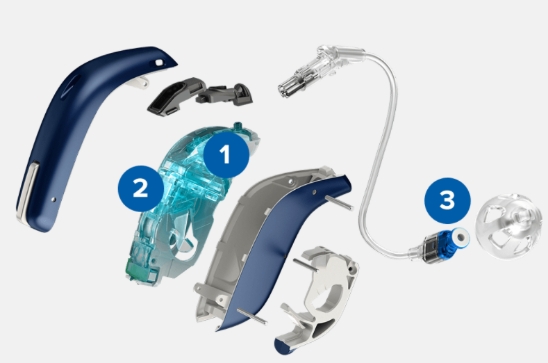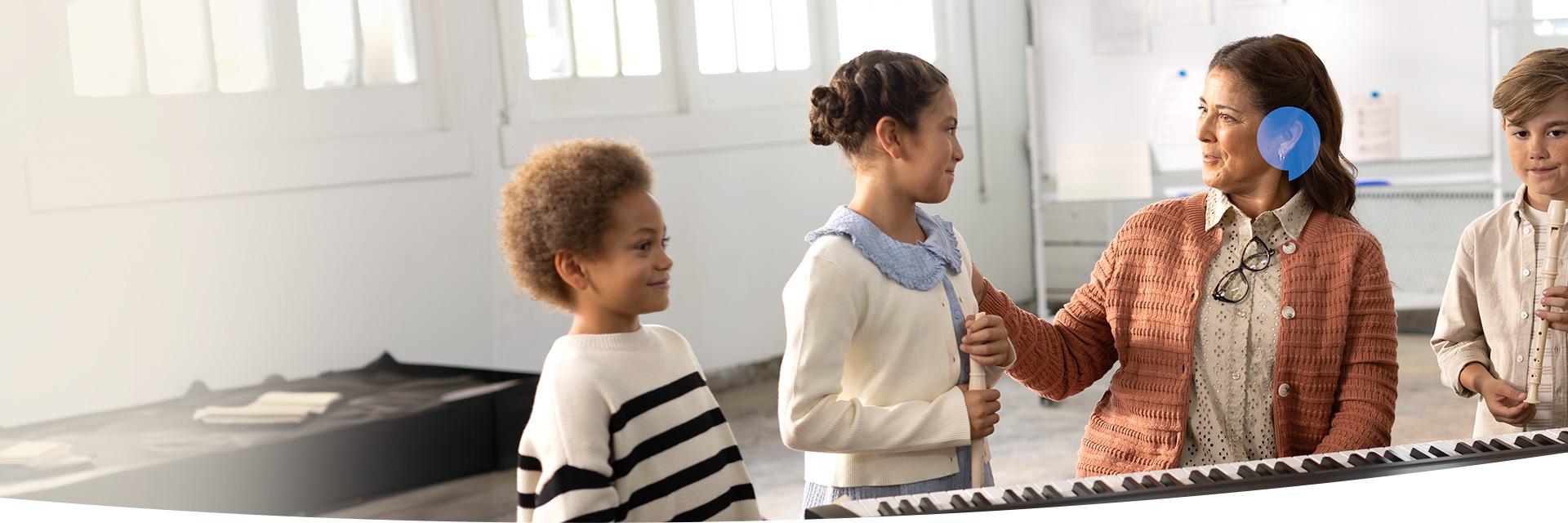There are hearing aids available that cater to severe / profound hearing loss, and our hearing care experts are able to advise further once your hearing evaluation is completed.
If your hearing loss is caused by changes in your outer or middle ear or if you have a single-sided profound hearing loss in one ear and good hearing in the other, then a bone anchored hearing solution might be the best option for you. Bone anchored hearing solutions send sound directly into your inner ear by delivering sound vibrations through the bone, bypassing the outer and middle ear.
If you instead have a severe or profound hearing loss in your inner ear, then a cochlear implant might be the best option for you. A cochlear implant bypasses the non-functioning part of the inner ear and sends sound straight to the auditory nerve and on to the brain. This is different from traditional hearing aids that, instead, amplify the sounds, which at some point might not have the desired effect.
Unlike hearing aids, both hearing solutions involve surgery. However, both surgeries are well-proven and safe routine medical procedures, performed by an Ear, Nose and Throat Surgeon (ENT).
















